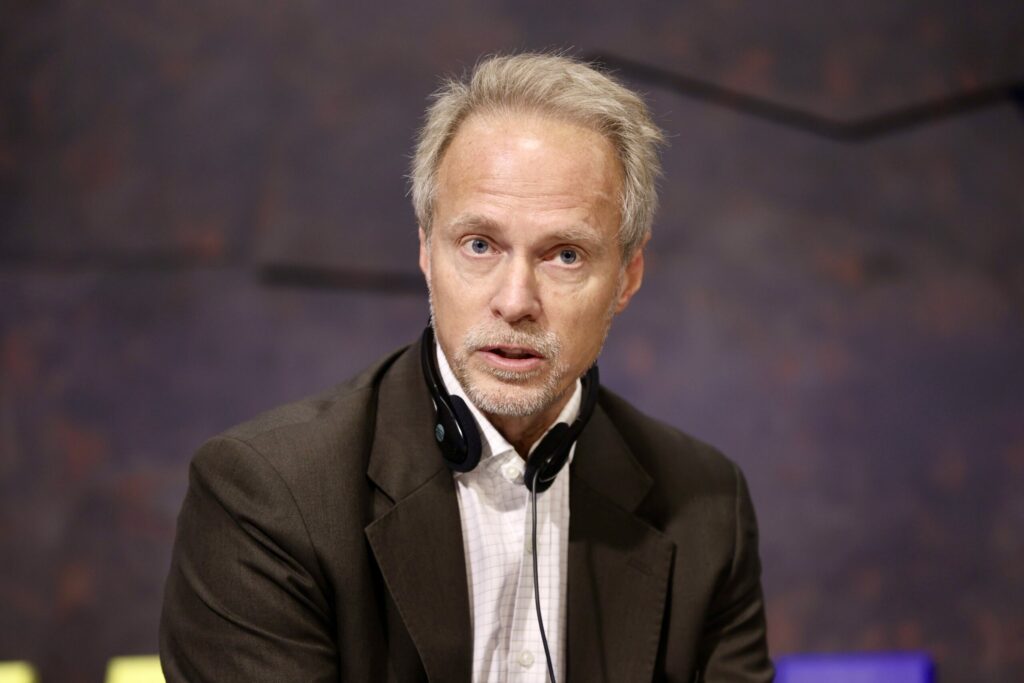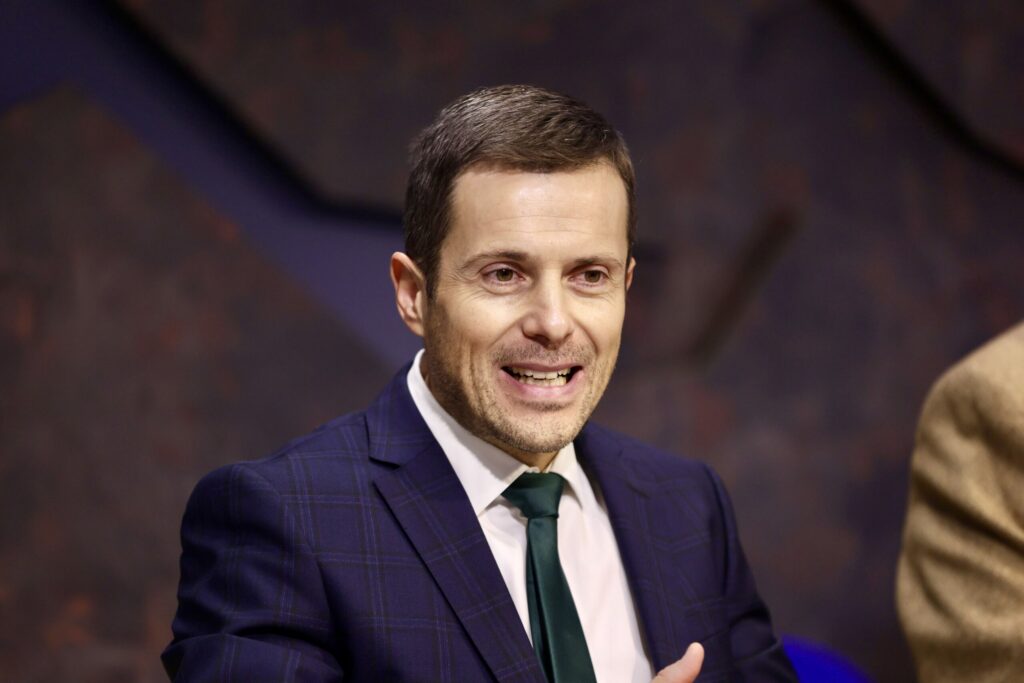Montenegro has exceptional opportunities and an equal opportunity for progress towards renewable energy sources, said Yngve Engstrom, Head of Cooperation at the Delegation of the European Union to Montenegro, at the panel “The Future of Energy Transition in Montenegro: Plans, Perspectives, and Opportunities” held at Europe House.

Engstrom stated that already half of Montenegro’s energy mix comes from renewable sources, mostly from water, but the possibilities for using solar and wind energy are fantastic, and now is the right time to work on a fair energy transition.
Answering questions about energy transition, energy efficiency, and renewable energy means addressing a topic that is the reality of our present and a test of our maturity and awareness that life will continue after us, said Minister of Energy and Mining Saša Mujović.

“The question of integrating renewable energy sources into Montenegro’s energy system is not a choice but an obligation, and fulfilling this obligation requires a plan and a strategy—everything that Montenegro currently lacks,” added Minister Mujović, emphasising that strengthening the transmission network is essential for the development of renewable energy sources.
Minister Mujović emphasised the need to change the attitude that both society and the state have toward electrical energy. Development strategies involving the construction of new energy sources and accompanying transmission networks must exclude treating electrical energy as a social category.

“Montenegro has enormous potential for a complete shift to clean energy with wind and solar energy. To achieve that, we need to create long-term strategies and plans. I urge political entities in Montenegro not to use the issue of energy efficiency for populist purposes,” Mujović said.
On its path towards the EU membership and fulfilling its mission to become a zero-emission economy by 2050, Montenegro will have to part with its most important energy facility, the Pljevlja Thermal Power Plant. This will be anything but easy, the minister emphasised.
“For us, a significant relief and a solution to the problem would be the construction of a stable energy source or a hydroelectric power plant. My favourite is the Krusevo Hydroelectric Power Plant, primarily due to its cost-effectiveness, high power, and a good ratio of power to energy. It is better than the Komarnica project in these aspects. There are also hydropower plants on the Cehotina River,” added Mujović.
The question of a fair energy transition, the construction of cleaner energy sources, and energy efficiency is also a financial issue. Martin Leberle, CEO of NLB Bank, mentioned that both citizens and businesses have access to more money under favourable conditions than they are utilising. The bank recently signed a €2 million credit line agreement with the European Bank for Reconstruction and Development for financing energy efficiency and renewable energy projects. However, citizens and businesses are not adequately responding to the opportunities, and the bank is working on educating its clients about the need for energy efficiency.

“When we talk to construction companies about financing their business and ask if they have certificates of energy efficiency for materials, which would allow them to get funds on better terms, they ask us why. They respond that they don’t need this because they will sell their product regardless of its energy efficiency. That’s why education at all levels is crucial,” Leberle said, adding that there is room for significant and favourable financial resources for a fair energy transition in synergy with the government and international institutions.
The availability of funds and their underutilisation is confirmed by Nemanja Peković, Assistant Director of Eco Fund. Even local governments do not submit projects they had already announced and based on which the Eco Fund allocated its funds. Therefore, they believe that joint efforts are the only solution.
“If we combine the funds of the Ministry of Energy, those of Eco Fund, and the funds that banks provide under favourable conditions, we can create a good product to accelerate this transition period,” Peković said.
In addition to the speed of transition, the fairness of the transition is crucial, said Yngve Engstrom, Head of Cooperation at the European Union Delegation to Montenegro. Engstrom emphasised that shutting down the Pljevlja Thermal Power Plant requires thoughtful cooperation with the local community and the financing of new jobs to ensure that the energy transition is a transition for everyone.
Goran Tadić from the company Solar presented the results of the company’s work, plans, and obstacles they encountered during the pioneering project of building solar power plants in Montenegro. He stated that the goal of building renewable energy sources is to use that energy at the production site, which current projects of installing photovoltaic cells on the roofs of private houses and companies allow. The company’s future plans include the construction of larger solar capacities.
The panel “The Future of Energy Transition in Montenegro: Plans, Perspectives, and Opportunities” is part of the campaign “Let’s Start Clean Energy,” organised by Europe House in collaboration with the Association of Youth “Step with Science” on behalf of the Delegation of the European Union to Montenegro.
